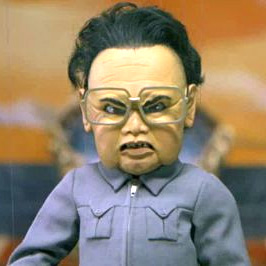The following article was written by a chief executive in a Chinese publishing company and published in the New York Times:
I always used to hate it when foreigners focused on censorship of the media in China. I think foreigners have this image of a Fu Manchu-like Chinaman, sitting in a dark corner trying to censor everything. I often wanted to say: “It is not like that. We don’t really feel that much censorship.”
Take my job as a lifestyle magazine editor and publisher. We have not been censored for the last four years, and we have had pretty aggressive (i.e., very sexy) fashion shoots, etc. I mean, FHM is the
most popular men’s magazine here.
Clearly we have liberalized.
However, during the current milk powder crisis, I realized censorship is actually pretty strong. Yes, Fu Manchu as Big Brother is among us. There is a lot of open debate about the milk powder crisis on the Internet. People are questioning the news, and everyone suspects a massive government cover-up job. However, all this debate is banned on state-owned media, particularly television.
Another prime example of censorship during the Olympics happened when the Chinese hurdler Liu Xiang dropped out of the race. There was a lot of speculation as to how long his coach, the government, his sponsors and even Liu himself had known that he could not compete. The public felt that they were given a song and dance at the last minute. Again, state-owned traditional media were not allowed to talk about it.
I must say I find it very difficult in some ways to understand the comment “It is not like that. We don't really feel that much censorship.” Really? Is that a willfull myopia?
As part of my general reading after this article, I googled "China press freedom." To get to the first few documents listed I had to use a proxy server. (Incidentally, according to Freedom House in 2008 China ranks equal 181st out of 195 countries in terms of freedom of the press - North Korea is last.)
However, although it is easy to be sarcastic about and critical of comments like the ones made in the article above, it is neither constructive nor useful. The fact is, many Chinese people (though by no means all) feel the same way. It could be argued, for example, that this is a cultural difference, and how Chinese respect for authority and supposedly raging hunger for harmony are simply at odds with western liberal ideas of freedom of speech.
But there is another take on this article. The writer is a chief executive at a Chinese publishing company. She KNOWS how much censorship affects what can be published, and she KNOWS that is she is too harsh in her comments written in a neo-imperialistic capitalist mouthpiece like the New York Times it is going to seriously disrupt her guanxi with the powers that be. That's why, of all the corrupt and non-harmonious events that happen in China on a daily basis, she chooses Liu Xiang's freakin' achilles heel (gossip, not harmful) the melamine scandal (already out of the bag) and nudity and sex (as if any China watcher really considers that as important) as examples of censorship. One comment on the original article calls this "complicit ignorance" and I have to say I agree.



